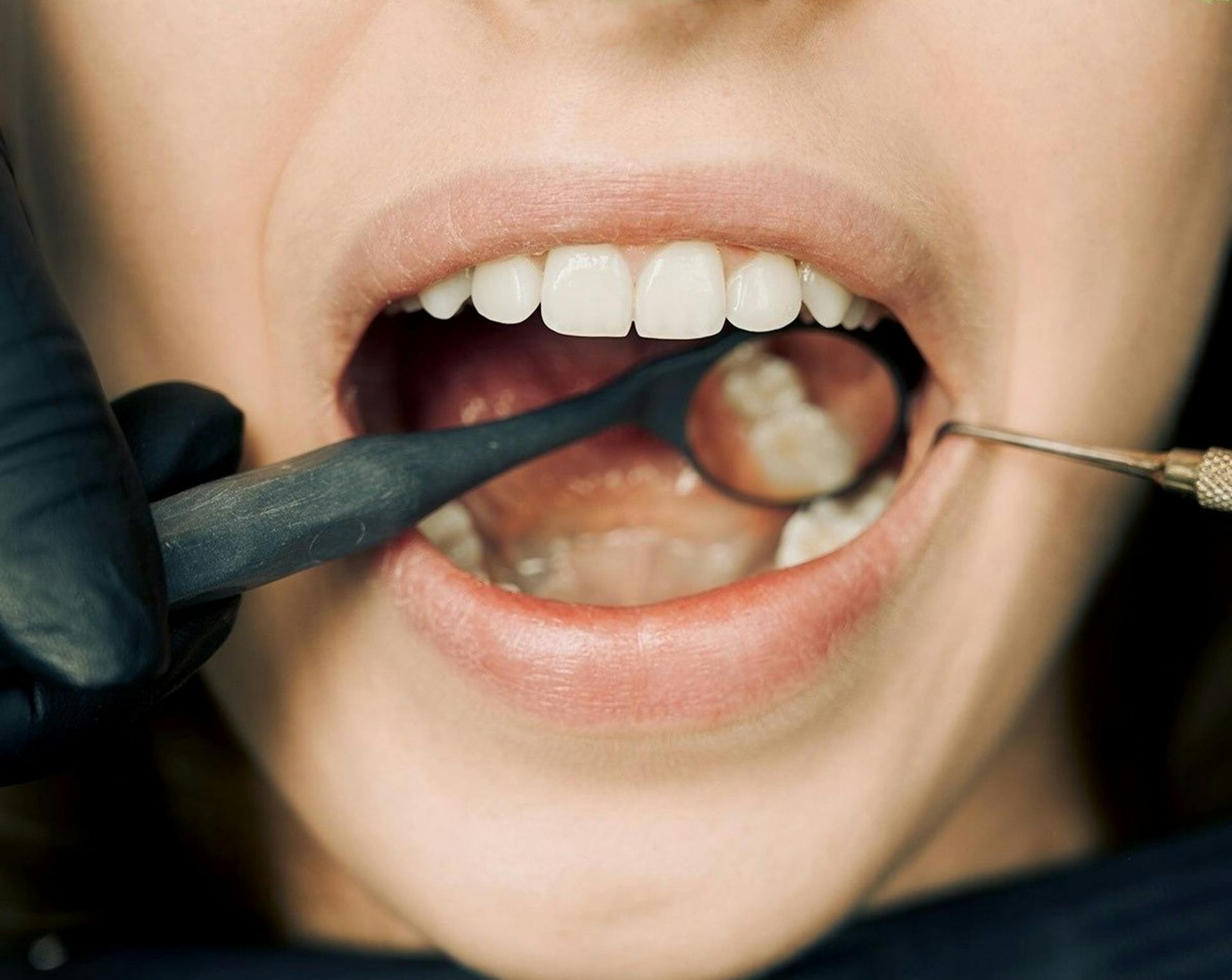
Dental bonding is a popular cosmetic dentistry procedure that can fix chipped, cracked, or discolored teeth. Most insurance plans don't cover the cost of dental bonding.
Insurance companies consider dental bonding a cosmetic procedure, so it's unlikely to be covered by your insurance plan. However, some insurance plans may cover part of the cost if the bonding is necessary to repair a tooth that's been damaged due to an accident or injury.
If you're considering dental bonding, it's essential to check with your insurance provider to see if they cover any of the costs. Some insurance plans may have a specific rider or add-on that covers cosmetic procedures like dental bonding.
Dental Bonding Insurance Coverage
Dental bonding is sometimes covered by insurance, but it depends on the reason for the procedure. If you're getting dental bonding to repair a broken tooth, your insurance may cover part of the cost.
Your insurance policy may cover dental bonding if it's necessary for structural reasons, such as repairing a chip or crack.
Some dental insurance plans offer coverage for dental bonding, which can help you pay less out-of-pocket.
To determine how much your insurance will cover, it's essential to find out how much your dentist will charge you for the procedure and what your deductible is.
Many dental offices offer payment plans to make procedures like bonding more affordable.
If your insurance doesn't cover bonding, consider using Health Savings Accounts (HSAs) or Flexible Spending Accounts (FSAs) to set aside pre-tax money for medical and dental expenses.
You can also explore alternative treatments that might serve the same purpose as bonding and have better insurance coverage.
Discount dental plans can offer reduced rates for various treatments, including bonding, but these plans involve paying an annual or monthly fee in exchange for discounted dental services.
Here are some alternative financial solutions to consider:
- Payment Plans: Many dental practices offer payment plans to spread out the cost of treatment over time.
- Discount Dental Plans: These plans offer reduced rates for various treatments, including bonding.
- Health Savings Accounts (HSAs) or Flexible Spending Accounts (FSAs): These accounts allow individuals to set aside pre-tax money for medical and dental expenses.
- Alternative Treatments: Discuss with your dentist about other potential treatments that might serve the same purpose as bonding and have better insurance coverage.
Cost and Financing
The cost of dental bonding can be a significant factor in deciding whether to undergo the procedure. The cost can range from $100 to $500 per tooth, depending on the extent of the damage and the location of the dentist.
The cost can vary depending on where you live and whether the dentist is in-network. You may also need to factor in the cost of an oral exam and professional cleaning, which can add hundreds of dollars to the overall cost.
Some dental insurance plans offer coverage for dental bonding, which can help reduce the out-of-pocket cost. The national average cost for teeth bonding is $431, but can range between $288-$915.
Here's a breakdown of the common factors that impact the cost of dental bonding:
How Much Cost?
The cost of dental bonding can vary depending on several factors.
If you're paying out-of-pocket, the cost can range from $100 to $500 per tooth, and may be influenced by the amount of damage to the tooth, your location, and whether the dentist is in-network.
You may also need an oral exam and professional cleaning before the procedure, which can add hundreds of dollars to the overall cost.

Dental insurance can help cover some of the costs, but the specifics of coverage vary by plan.
On average, the cost of dental bonding is between $300 and $600 per tooth, although this can depend on the size of the treatment area, the number of teeth needing treatment, the dentist's experience and skills, and the geographic location of the dentist.
The national average cost for teeth bonding is $431, but can range from $288 to $915.
CareCredit Financing
You can use the CareCredit credit card to pay for dental care costs not covered by insurance. The CareCredit credit card can be used for a variety of healthcare expenses, including dental care, pet care, and spa treatments.
To find a dentist or oral surgeon near you that accepts CareCredit, you can use their Acceptance Locator. This makes it easy to find a provider in your area.
CareCredit can be used for a range of healthcare expenses beyond just dental care. This includes pet care, cosmetic procedures, vision, hearing, health systems, dermatology, pharmacy purchases, and spa treatments.
You can manage your CareCredit account and find a provider on the go with their mobile app.
Cosmetic Procedures and Alternatives
Dental bonding is a popular cosmetic treatment that can enhance your smile, but it's not always covered by insurance. In fact, it's rarely covered for purely cosmetic purposes, such as closing a small gap between your teeth.
If your insurance doesn't cover dental bonding, there are alternative financial options available. Many dental practices offer payment plans, allowing you to spread out the cost of treatment over time. You can also consider discount dental plans, which can offer reduced rates for various treatments, including bonding.
Some dental insurance plans may cover bonding if it's necessary to fix structural issues like chipped or cracked teeth. However, it's essential to check with your insurance provider and dentist to determine the extent of coverage.
Tooth Contouring
Tooth Contouring is a cosmetic procedure that involves minor adjustments to the shape of the teeth to improve aesthetics. It's rarely covered by dental insurance, but if it's necessary due to trauma or injury, there may be some coverage.
This procedure is considered purely cosmetic, which is why insurance companies typically don't cover it.
Cosmetic Procedures and Alternatives
Dental bonding is a quick and easy solution for enhancing the appearance of your smile, making it a popular choice for many patients. It can be finished in just one appointment, depending on how many teeth need to be bonded.
Dental bonding is a procedure where tooth-colored resin is applied to teeth to repair chips, cracks, or gaps. Insurance may cover part of the cost if the bonding is necessary for structural reasons, such as repairing a broken tooth.
Tooth contouring and reshaping involve minor adjustments to the shape of the teeth to improve aesthetics. However, since this is purely cosmetic, it is rarely covered by dental insurance.
Porcelain veneers can dramatically improve the appearance of your smile by covering chipped, stained, or uneven teeth. However, they are usually considered cosmetic and not covered by insurance, unless needed to repair teeth damaged by an accident or injury.
Most dental insurance plans won't cover dental bonding for purely cosmetic purposes, such as closing a small gap between teeth. However, insurance may cover part of the cost if the bonding is necessary for structural reasons.
The cost of dental bonding can be different for many reasons, but the goal is the same—to help fix teeth. Some dental insurance plans offer coverage for dental bonding, which can help you pay less out-of-pocket.
Vs. Veneers
Dental bonding and veneers are two popular cosmetic procedures that can help improve the appearance of your teeth. Dental bonding is less expensive than veneers, with a cost difference that can be significant.
Veneers are made of porcelain, a more durable material than the composite resin used in dental bonding. This means veneers can last up to 10-20 years, while dental bonding typically lasts 3-10 years.
One of the main advantages of veneers is that they are stain-resistant, whereas dental bonding is not. If you're looking for a more long-lasting and low-maintenance solution, veneers might be the way to go.
Here's a comparison of dental bonding and veneers at a glance:
Ultimately, the choice between dental bonding and veneers depends on your specific needs and goals. Be sure to discuss your options with your dentist to determine the best choice for you.
Sources
- https://www.thesuperbill.com/blog/is-dental-bonding-covered-by-insurance-how-to-use-your-insurance-for-dental-bonding
- https://creativedentistryofatlanta.com/blog/cosmetic-dental-procedures-are-they-covered-by-my-insurance
- https://www.humana.com/dental-insurance/dental-resources/cost-of-dental-bonding
- https://www.carecredit.com/well-u/health-wellness/teeth-bonding/
- https://www.drocascante.com/blog/how-much-is-dental-bonding/
Featured Images: pexels.com


